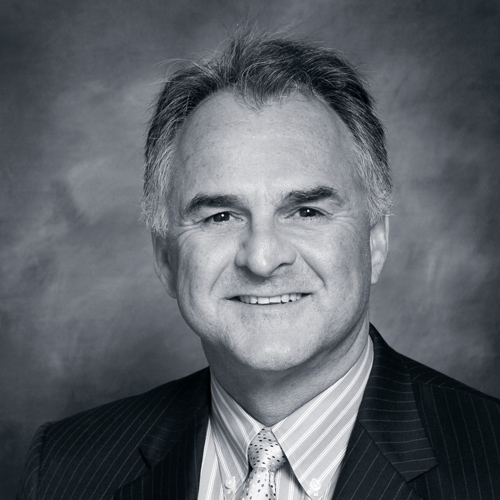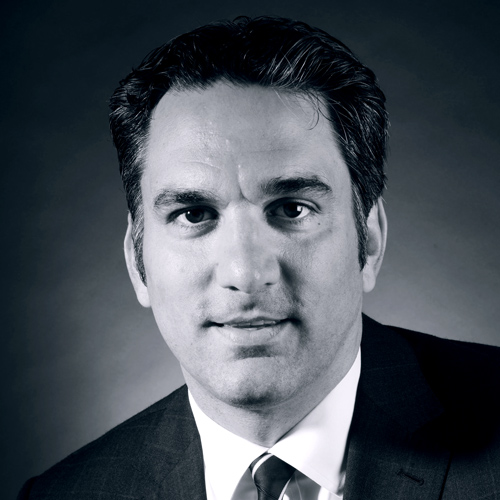One constant on the career path of Marla Zwas is her propensity to dig in and find innovative solutions.
“I like to get my hands in the dirt,” says the deputy GC of Flagstar Bank. “Sometimes people say they look at in-house lawyers and wonder if they’re willing to roll up their sleeves, and I always tell them I’m willing to put my hands and elbows in the mud.”
Whether it was covering PulteGroup’s compliance and legislative needs, helping Chrysler become an SEC-reporting company, or even in her current job, Zwas never stays put in her comfort zone. Instead, she reaches out, seeking opportunities to learn new legal concepts and wrangle with complex legal issues in need of practical resolution.
“Sometimes people say they look at in-house lawyers and wonder if they’re willing to roll up their sleeves, and I always tell them I’m willing to put my hands and elbows in the mud.”
Over the past 20-plus years, her leadership, determination, and legal skills have allowed her to direct wide-reaching initiatives at each of the places she’s worked, and this has been the value that defines her work as in-house counsel.
Zwas credits her past experiences at both PulteGroup and Chrysler (now Fiat Chrysler Automobiles) with providing a sound training ground to develop the leadership skills and best practices for cultivating operational excellence that she brings to her initiatives at Flagstar.
For example, at Chrysler she led the drafting of the company’s first public filings from scratch and established systems for that process in the future. That background in corporate governance provided invaluable insight into her current team’s efforts to standardize management committee governance at Flagstar.
“Doing the first filing for Chrysler was a fascinating experience,” she says. “We had to figure out a way to tell the Chrysler story starting with a blank piece of paper. The general counsel gave me exactly what I requested: a chance to personally interview all the senior executives about their current initiatives and thoughts on the direction of the company.” Zwas outlined the key points from those conversations, typed up a treatment, and from there, her team developed a document that became the first public filing Chrysler had compiled as a standalone company since the ‘90s.
At Pulte, Zwas was hired to manage litigation but quickly migrated to doing special projects for senior management. One of her most noteworthy achievements was designing and implementing a company-wide record management program at the request of Pulte’s CFO.
“I didn’t know much about records management—or even basic project management—and had to learn them both, soup to nuts,” she says. The project involved retaining and storing records, handling electronic documents, and putting an IT system in place. It was implemented in 18 months across 44 field offices, involving every business unit within the company.
Around that same time, Zwas worked with the National Association of Home Builders to develop a modern piece of tort reform legislation known as the Notice and Opportunity to Repair Act, which dealt with the runaway problem of people suing their builders. “The bill was written to ensure you can’t sue a builder unless you’ve given notice about the defects in the home and given them the opportunity to inspect the home and make an offer to fix,” she says. “I led this process with a team of general counsel of all the leading builders in the country—all of whom were very senior to me.” Zwas became the doer on the project. “We hosted several marathon drafting calls until we had a piece of model legislation, and then spoke to state legislators about the bill,” she says. It was adopted in more than 20 states.
Several years later, at Chrysler, Zwas became active with another industry-wide organization, the Automotive Industry Action Group (AIAG). Through the AIAG, she contributed to efforts to standardize the industry’s response to the SEC’s new rules on conflict minerals, mandated by the Dodd-Frank Wall Street Reform and Consumer Protection Act.
The rule requires companies to trace the source of all raw materials that go into their parts—all the way down to the minerals. It was an effort to disclose what public companies were getting from certain high-conflict regions, and Zwas jumped onto a team of industry lawyers that helped AIAG formulate communication materials they were distributing to suppliers to ensure deadlines were consistent and they were complying with the law in the same way. “I spent hours on the phone with other [original equipment manufacturers] and large suppliers because we didn’t want Honda asking in one way and Chrysler another,” she says. “We developed a common system everyone could use.”
Chrysler’s extensive contribution on the issue of conflict minerals garnered the company the first-ever Pioneer Award from the AIAG.
Zwas says she is always looking for challenges at work and in the organizations she helps. “My forte and what I hope that I bring to the table is the ability to envision, lead, and implement large-scale initiatives. Sometimes they involve operational pieces, some are purely legal,” she says. She continues to lead a number of initiatives in her current role that draws on the skills she developed over the course of her career.
One of Zwas’s most important roles at Flagstar is working with a cross-functional team to help the bank prepare for compliance with the Volcker Rule. “It’s an extraordinarily complex rule that governs the kinds of investments that banks can make and the type of trading activity they can engage in. We had to look at how it applied to us,” she says. Zwas worked with the team to set up systems and policies to ensure Flagstar stayed on the right side of the law.
For any initiative, Zwas says she starts her mission with a fact-finding phase. Once she gathers all the important intel, she moves on to the design and drafting phase. “The final and most important phase, where projects live or die, is the rollout, making sure a project is cleanly deployed with proper training, helpful tools, and legal guidance,” she says.
When her team was tasked with standardizing records management at Flagstar, Zwas directed the initiative using her usual formula: learn the schedules people were using and develop a sound program that all staff, across all disciplines, will be able to use. “Once you set up systems,” she says, “it’s a matter of documenting and deploying it throughout the organization with training and tools and improving the program over time.”
She and her team are also helping to standardize and formalize the bank’s management committee governance. “We have our board of directors and committees. Under that layer, we have management committees that make key decisions. In a bank, regulators look at all that we do, even at the management committee level. We are standardizing the way in which we define and operate those committees and formalizing the use of those committees to improve policymaking.”


